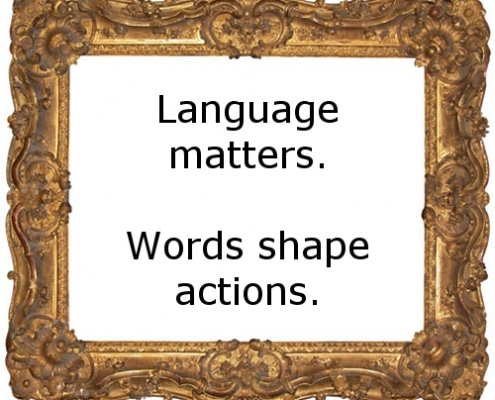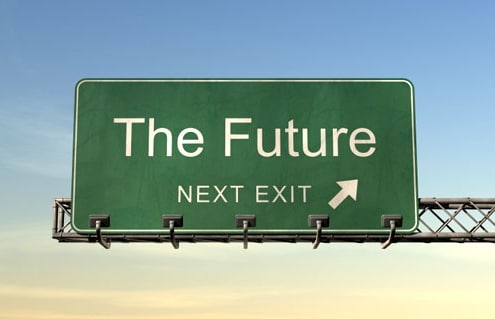Tag Archive for: leadership

Jerry Kohlberg: Banking on a Moral Identity
Blog Jerry Kohlberg amassed one of Wall Street’s largest fortunes after co-founding Kohlberg, Kravis and Roberts (KKR) in 1976, but it was his consistent emphasis on ethics as a force for good, along with his warnings of the potential evils outsized wealth can tender, that we will remember most.
Jerry Kohlberg amassed one of Wall Street’s largest fortunes after co-founding Kohlberg, Kravis and Roberts (KKR) in 1976, but it was his consistent emphasis on ethics as a force for good, along with his warnings of the potential evils outsized wealth can tender, that we will remember most.

Framing the Language of Business
Blog Framing is not just how you present a painting. Framing helps to communicate the type of art, it complements subject matter, and it influences how the viewer perceives the image. Framing also matters when it comes to business, and the language we use can deeply affect both the rules we follow and those we are willing to break.
Framing is not just how you present a painting. Framing helps to communicate the type of art, it complements subject matter, and it influences how the viewer perceives the image. Framing also matters when it comes to business, and the language we use can deeply affect both the rules we follow and those we are willing to break.
While business has its own lexicon, a new piece in Ethisphere by Scott Killingsworth, Senior Counsel with Bryan Cave LLP in Atlanta, illustrates that when we couch the business of business in terms of war and gamification, we prime the pump for pernicious results.

Why CEO Activism Could Change the World of Public Companies
Blog
Featured Collaborator of July/August: David Mayer
BlogInterview with David Mayer, associate professor in the Management and Organizations Area at the Ross School of Business at the University of Michigan
What are your main areas of research?
 I am an organizational scholar who focuses primarily on one fundamental question: When and why do individuals in organizations engage in unethical and prosocial behavior? More specifically, I am interested how the social environment in organizations (e.g., leadership, peers, organizational climate, organizational practices) impacts unethical and prosocial behavior.
I am an organizational scholar who focuses primarily on one fundamental question: When and why do individuals in organizations engage in unethical and prosocial behavior? More specifically, I am interested how the social environment in organizations (e.g., leadership, peers, organizational climate, organizational practices) impacts unethical and prosocial behavior.
I am also fascinated with the question of whether employees and leaders think that business and work are part of the moral domain of social life and I have worked on several papers that demonstrate that at times “business” and “ethics” are inseparable and at times they are, as the truism suggests, an oxymoron.
In contrast to the bulk of work taking a social science lens on ethics, I typically take a positive lens by not focusing solely on identifying pitfalls and biases that lead to unethical behavior, but by understanding how the context at work can improve prosocial behavior, how employees and leaders in organizations can influence others to do good, and when leaders and employees are most likely to act in ways that suggest they consider work to be a moral domain.

Meet Azish Filabi, our new CEO
BlogTo Our Community,
 We are proud to introduce Azish Filabi, our new CEO.
We are proud to introduce Azish Filabi, our new CEO.
After a comprehensive search over several months, we identified several potential candidates to take over the helm of our organization. However, one stood out above all others and we are thrilled that she has come on board.

Poisoning the Well: The impact of incivility in the workplace
Blog Culture matters more than any other factor in determining the level of ethical conduct within an organization. Knowing this, leaders need to be ever vigilant to how toxic day to day interactions can poison the working environment.
Culture matters more than any other factor in determining the level of ethical conduct within an organization. Knowing this, leaders need to be ever vigilant to how toxic day to day interactions can poison the working environment.
Christina Porath, associate professor at Georgetown University and co-author of “The Cost of Bad Behavior” recently published an op-ed and online quiz (“No Time to Be Nice at Work,” Sunday, June 21, 2015) in The New York Times illuminating the dramatic degree in which courtesy and consideration in the workplace actually impact individuals.

Ethics Pays in Business, as in Politics
Blog People often say they want a strong leader more than an ethical leader. David Brooks has a lovely essay in The New York Times demonstrating why this thinking is wrong for political leaders. But the quotes from the article below shows that the argument works just as well for business leaders as it does for politicians.
People often say they want a strong leader more than an ethical leader. David Brooks has a lovely essay in The New York Times demonstrating why this thinking is wrong for political leaders. But the quotes from the article below shows that the argument works just as well for business leaders as it does for politicians.

It’s time for policy makers to enter the 21st century
Blog
“Mind, Society and Behavior” and Ethical Systems Design
Blog

